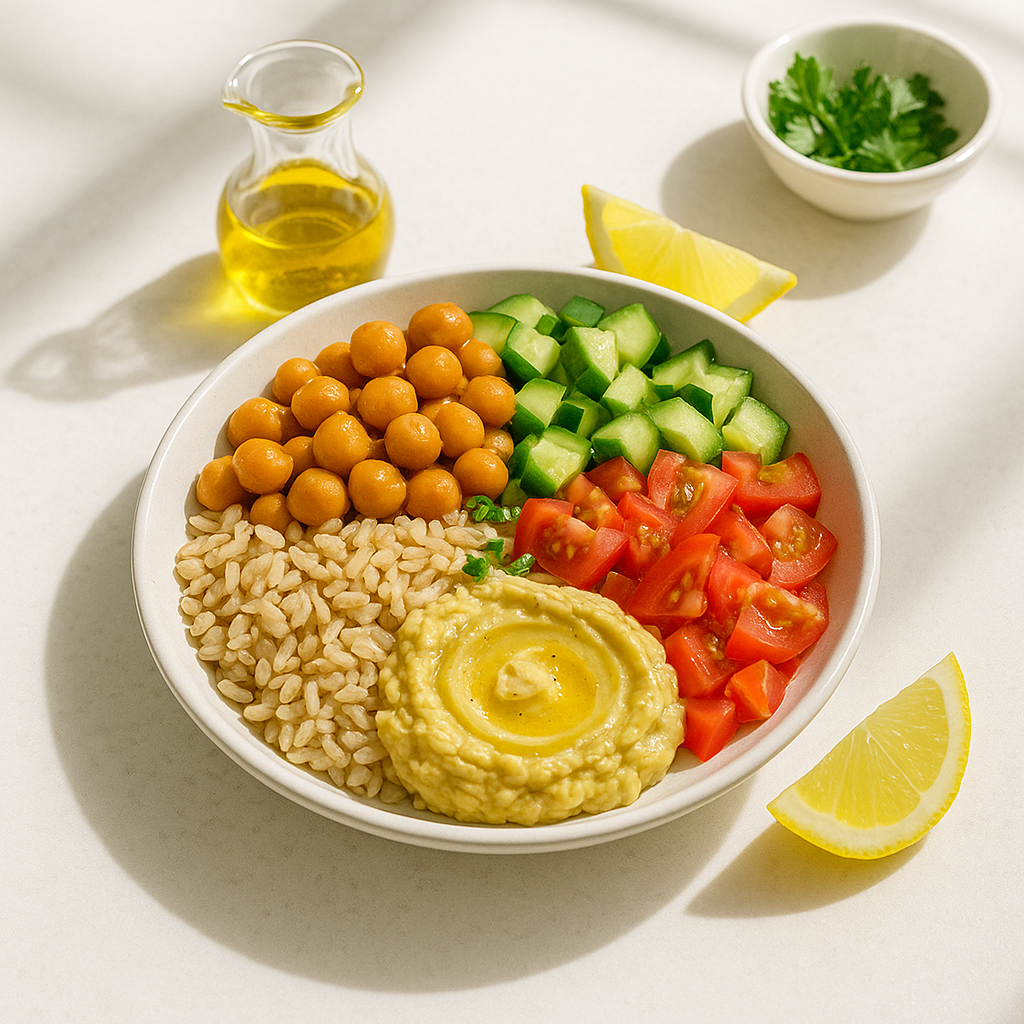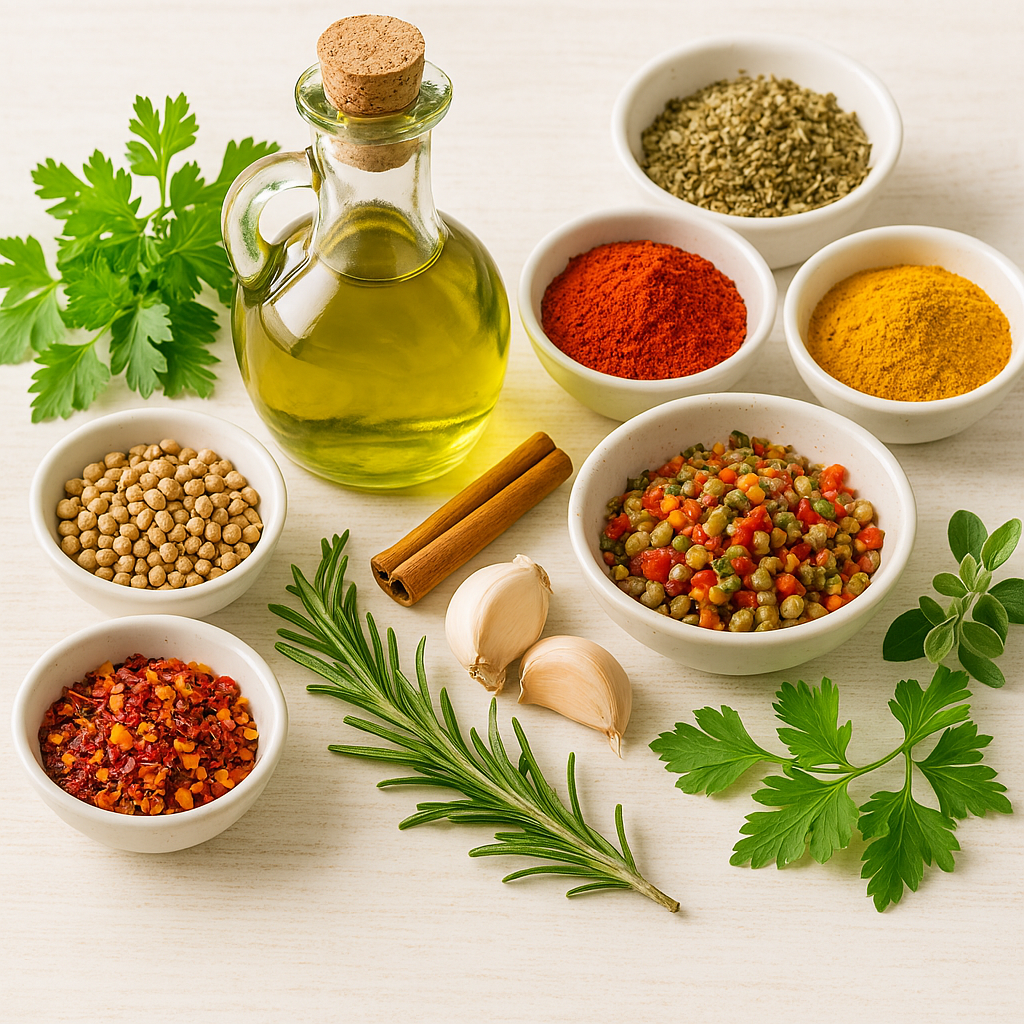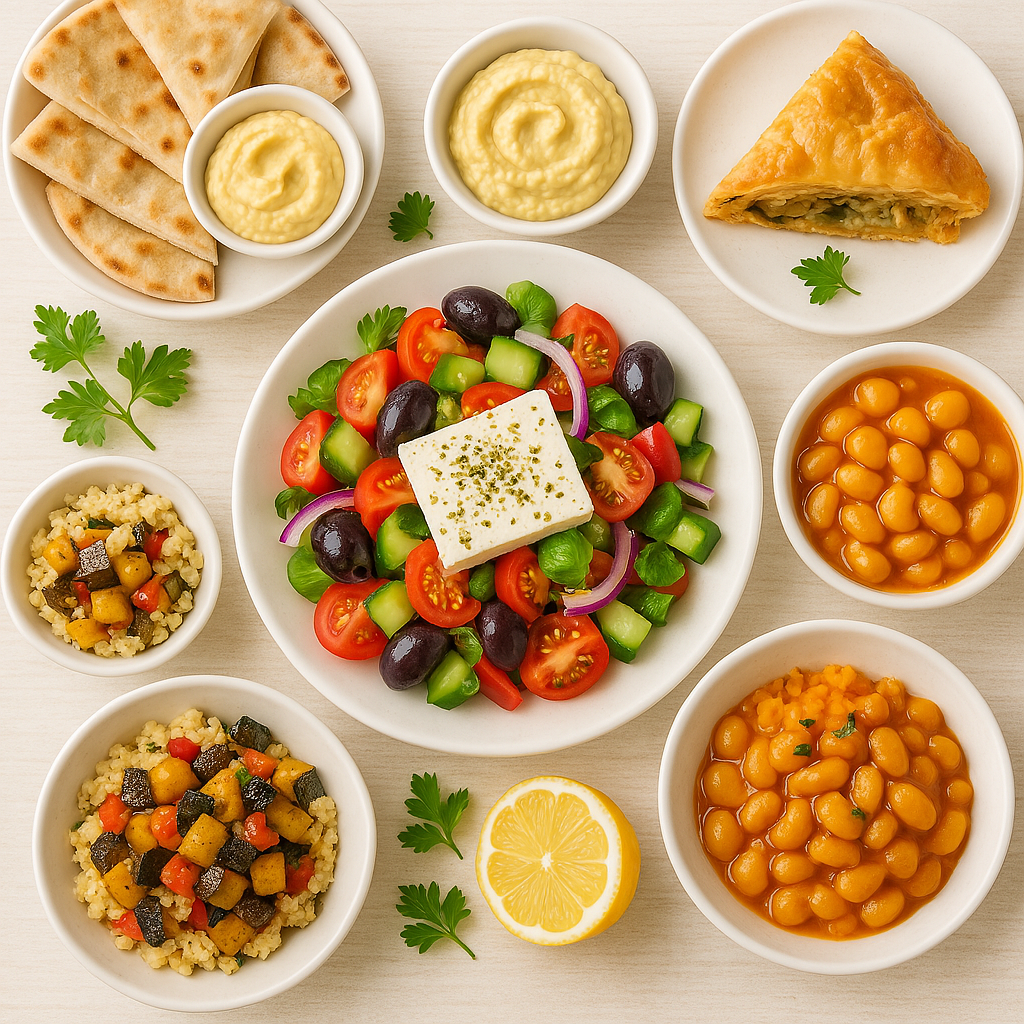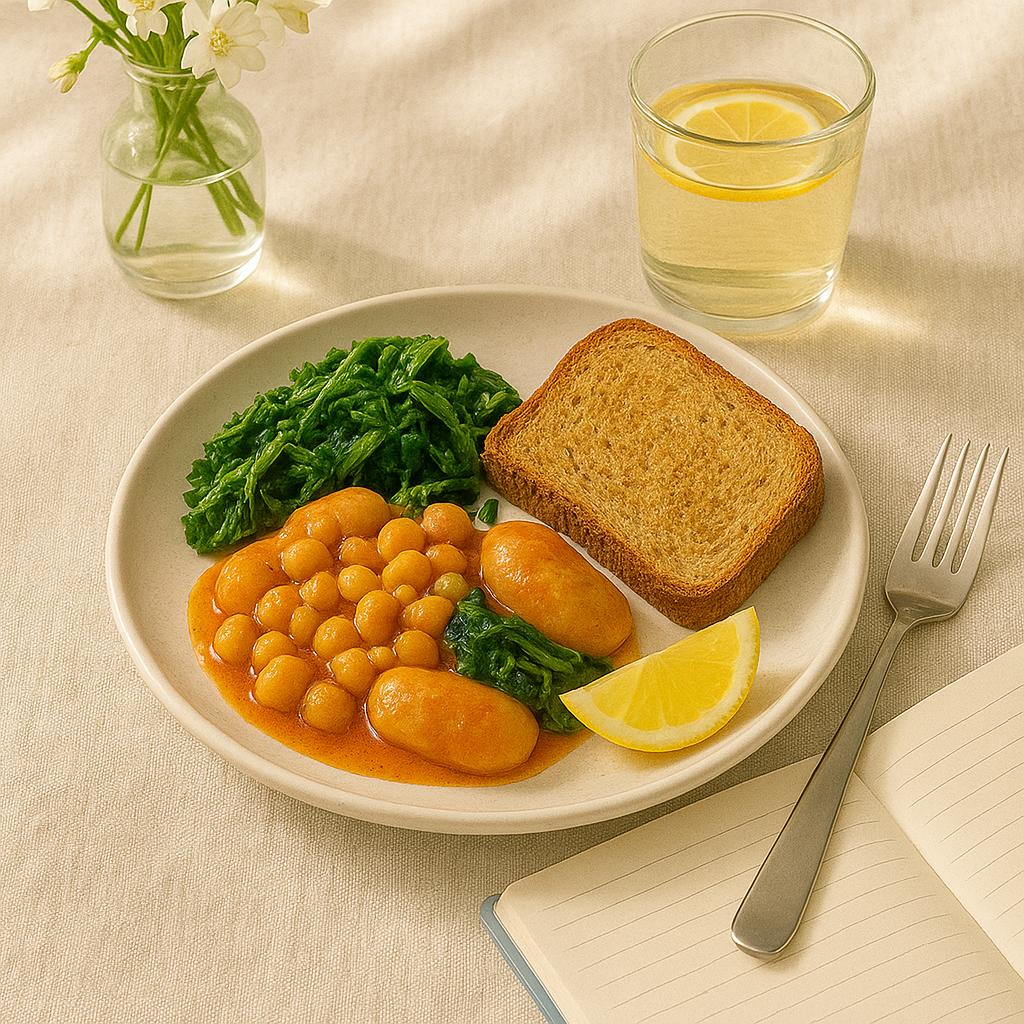

If you’ve ever scrolled past a bowl of chickpeas drizzled in olive oil or a vibrant Greek salad and thought, “I could eat that,” congratulations — you’re halfway to the Mediterranean lifestyle.
More than just a diet, the Mediterranean way of eating is a centuries-old approach to balanced, whole-food nourishment. It’s not about rules or restrictions. It’s about flavor, simplicity, and wellness that fits into real life — especially for those in their 30s and 40s who want to feel energized, reduce inflammation, and eat with intention.
This guide will help you understand the foundations of the Mediterranean diet — with practical tips, product shortcuts, and a focus on plant-forward, heart-smart eating.

The Mediterranean diet reflects the traditional eating patterns of countries like Greece, Italy, and southern Spain. At its core, it’s a plant-based lifestyle built on:
Unlike restrictive plans, it’s flexible, joyful, and designed to be sustainable long-term — which is why it consistently ranks as the best overall diet by health experts worldwide.

Especially for people in their 30s and 40s juggling career, stress, and metabolism shifts, the Mediterranean approach delivers more than weight management. It supports:
Chronic inflammation is linked to fatigue, brain fog, and long-term disease. The Mediterranean diet combats this with antioxidant-rich foods like olive oil, garlic, legumes, and leafy greens.
High in fiber and fermented ingredients, it encourages healthy digestion, microbiome balance, and regularity.
With slow-digesting carbs and healthy fats, meals keep you full without crashes. Omega-3s and polyphenols may also support mental clarity and emotional balance.
Even if you’re not thinking about cholesterol yet, the Mediterranean diet helps maintain healthy blood pressure and circulation with less saturated fat and more plant-based meals.
No need to overhaul your whole pantry. Start by building your plate around these five elements:
Beans, chickpeas, and lentils are protein-rich, satisfying, and inexpensive.
Try This:
Paliria Chickpeas with Cumin & Lemon Dressing over a grain bowl or arugula salad.
Use olive oil liberally — not just for cooking, but as a finisher for salads, grains, or vegetables.
Hack: Swap butter for a drizzle of olive oil and lemon on toast or steamed greens.
Bulgur, barley, brown rice, and farro provide complex carbs and fiber.
Meal Prep Tip: Cook a batch on Sunday to use all week under beans, salads, or veggie stir-fries.
Cucumber, tomato, spinach, onion, parsley — raw or roasted, they add hydration and nutrients.
Fast Add-On: Toss chopped cucumber, tomato, red onion, and lemon into any dish for a Greek twist.
Forget bottled sauces — flavor comes from lemon, garlic, oregano, and seasonal herbs.Low-Stress Option: Paliria’s ready-to-eat Giant Beans in Tomato Sauce are simmered in real Greek herbs and olive oil.

Breakfast:
Whole grain toast with avocado, olive oil, and a squeeze of lemon. Add cherry tomatoes or olives on the side.
Lunch:
Chickpea and farro bowl with greens, cucumber, and tahini dressing.
Snack:
Fava spread with carrots and pita chips or a few dolmas with fresh fruit.
Dinner:
Sautéed greens with garlic and olive oil, served with Paliria Giant Beans and roasted zucchini.
Dessert:
Fresh berries with a drizzle of honey or a few almonds.
Starting a new eating habit is simpler when the food is already prepped. Paliria’s shelf-stable, vegan Greek meals are simmered in olive oil and seasoned with traditional herbs — making it easy to eat Mediterranean even when life is busy.
No cooking. No stress. Just authentic, plant-forward food ready in seconds.
The Mediterranean diet is:
So whether you’re stepping into your wellness era or just trying to eat a little better, this lifestyle is here to support you — one olive-oil-drizzled bite at a time.